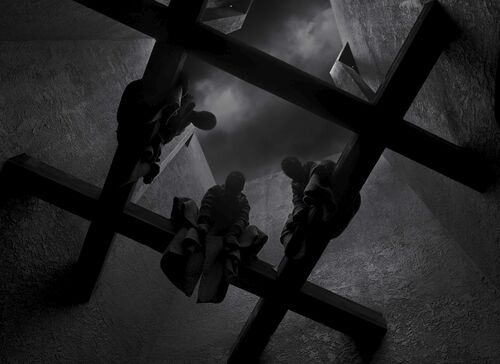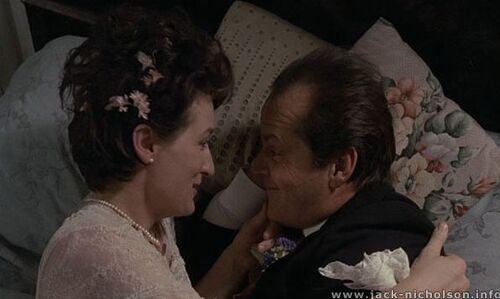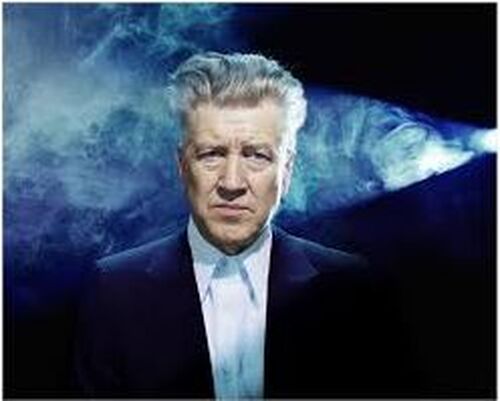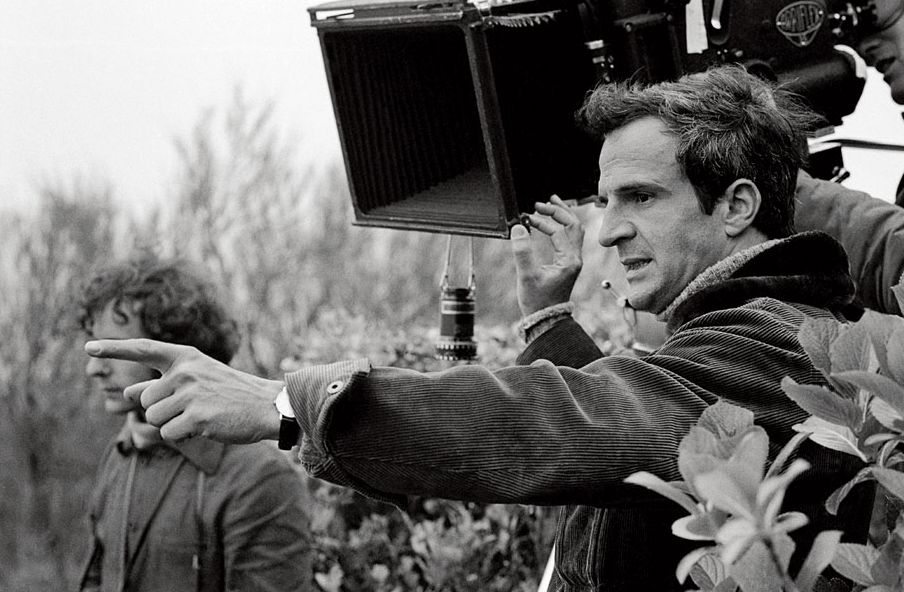
Truffautbruary, a month dedicated to Francois Truffaut: The 400 Blows
 "Dedicated to the memory of Andre Bazin."
"Dedicated to the memory of Andre Bazin."
Reeling from the death of his dearest friend and mentor, Andre Bazin, Francois Truffaut was set to begin shooting his first feature film. Bazin was a savior to Truffaut, helping him through various financial difficulties and even some criminal issues in his formative years; Bazin was perhaps the first person working around cinema to realize Truffaut's potential. As a means of escaping his difficult adolescent years, Truffaut began skipping school and filling his days with screenings at the cinema. It was during this time of prolific movie watching that a passionate fire for cinema was lit within Truffaut. It was Bazin who pulled every string he could to get Francois out of the French Army. After his release, Bazin then gave a job to Francois as a writer at his newly formed film magazine, Cahiers du Cinéma. It was during his time at Cahiers that Francois would write his scathing critique of filmmaking at the time, "A Certain Tendency of the French CInema" which would usher in the French New Wave and change the face of cinema for all eternity. After the upheaval from the events spawned by Truffaut's critique, he suddenly found himself with a chance to make a film of his own. On the first day of filming, Francois learned that Andre Bazin had died, the person that paved his professional career, and the one constant in his life he could always call on for advice and comfort. Bazin's death brought about a bleakness to the shoot, as Francois nursed a broken heart over losing such a pivotal mentor and friend. Just as the cycle of life goes, post-production of the film was marked with the birth of Truffaut's first daughter, Laura. Similarly, Truffaut, after striking gold with his debut feature by creating an absolute masterpiece, was himself born as a filmmaker.
A scrapped planned debut feature left Francois Truffaut with an abundance of images of France that he decided to use years later in his coming-of-age masterpiece. Opening with gorgeous photography showcasing the streets of Paris acting as the perfect love letter to France, The 400 Blows begins by showing the expansive world and the ability it has to completely swallow up that which does not belong. Through The 400 Blows, Truffaut would introduce the world to his cinematic alter ego, a character he would revisit three more times as a means to explore traversing adulthood, and for Truffaut to visualize various aspects of his own life. Antoine Doinel, in part named after a collaborator of Jean Renoir who Truffaut idolized as a filmmaker, struggled to find his place in the world. Knowing his father was not his birth father, an aspect directly inspired by Truffaut's own life, and struggling to connect to his mother who always seemed to have something better to do than spend time with him, Antoine was often left to his own devices. Restless and uninspired, Antoine would rather spend his days with his best friend, Rene, the only real confidant he had. Rene was inspired by Truffaut's lifelong friend Robert Lachenay, a pair that was seldom apart, and supported each other through the various ups and downs of their lives. Ostracized at school and ignored at home, Antoine cut class to go to the cinema and neglected his homework in favor of spending time with his best friend. After several delinquencies, his parent's frustrations escalated and they had Antoine sent to an observation center for troubled youths. Once again, finding himself in a place that he did not feel like he belonged, Antoine was eager to escape. Making good on his desire to escape, Antoine squeezed out from beneath a fence and made a break for the beach where he was faced with a seemingly limitless expansive ocean, closing with a freeze frame showing Antoine facing the audience, staring into our own souls. This iconic ending, both haunting and emotionally gratifying, leaves the audience open to self-examination as we are forced to ask ourselves if we fit much better in the world than Antoine does.
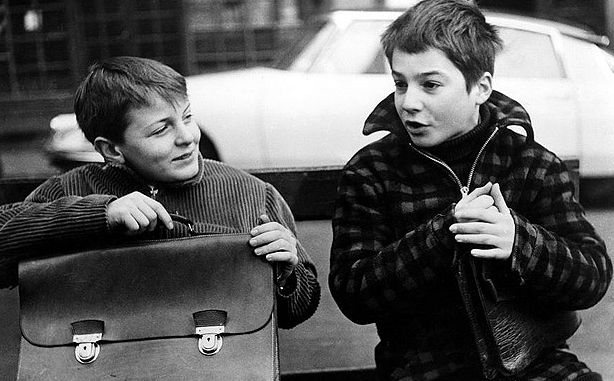
My favorite aspect of The 400 Blows is Francois Truffaut's innate ability to capture the most forgotten aspects of childhood. When most of us advance past a certain age, we forget the pivotal aspects of our lives as children, and Truffaut seemed to never let those details slip his mind. Steven Spielberg noticed this characteristic of Truffaut's which caused him to reach out to Truffaut to ask him to play Claude Lacombe in Close Encounters of the Third Kind, as he needed someone who would approach the role with the innocence of a child. The dualities of childhood Truffaut repeatedly captures in The 400 Blows most overtly illustrates the gentle heart of the filmmaker, the quality I have most admired. The comradery of childhood is what gets children through the boring school day as they itch to run to the playground or race home to finally have some time for themselves. Yet, self-preservation is also a driving force of childhood, and the jokes made moments ago solely to get a laugh from your classmates, will easily turn into a lot of finger pointing to relieve blame when the teacher is facing the class again. Oftentimes, children will do anything to get a rise out of their classmates but also waste no time throwing them under the bus to save their own skin. Francois Truffaut also uniquely captures the feeling many children have that the world is their oyster, and once they grow up they can do anything. There is a scene where Antoine and Rene are discussing their futures, each floating ideas off the other with the belief that they can do whatever they choose to do. It's this particular detail of childhood that make adulthood such a disappointment; it is not until we mature that we realize our options are limited and our futures are not as easy to unfold as we expected in childhood. In The 400 Blows, Francois Truffaut captures life from a child's perspective better than in any film I have ever seen. It really does feel like childhood is solely made up of chores, schoolwork, and rules when you are a child. Granted, most of us don't have to do deal with the abuse and neglect Antoine did, but we can almost all relate to the overbearing responsibilities of childhood even if we forget what that was like once we become adults.
Truffaut's ability to capture a moment that is easier felt than described is one of my favorite abilities of his as a filmmaker. Just like in Jules and Jim, Truffaut allows the audience to remember what it's like to feel newly in love, that initial drive to constantly be near the person you desire and how all-encompassing that feeling of a new love is. In The 400 Blows, Truffaut leaves the audience no choice but to remember exactly what it felt like to be somewhere you're not supposed to be. Granted, it's always fun to visit a carnival ride, but it's even more fun when you visit the ride on a school day. The spinning scene showing Antoine on this ride while the world is rotating so quickly around him that he can't focus on anything is a perfect analogy for the way Antoine was riding through life. Without any direction or help to navigate through his adolescence, Antoine often seemed to feel like a spectator in life rather than a participant. The closest Antoine came to having a focal point while he was on the spinning ride was when he would pass by his best friend, similar to the way in which Francois Truffaut's most faithful companion, especially through his childhood, was his best friend Robert Lachenay. Interestingly, it is this scene that delivers a cameo of Francois Truffaut as he is seen both on the ride with Antoine and as they exit.
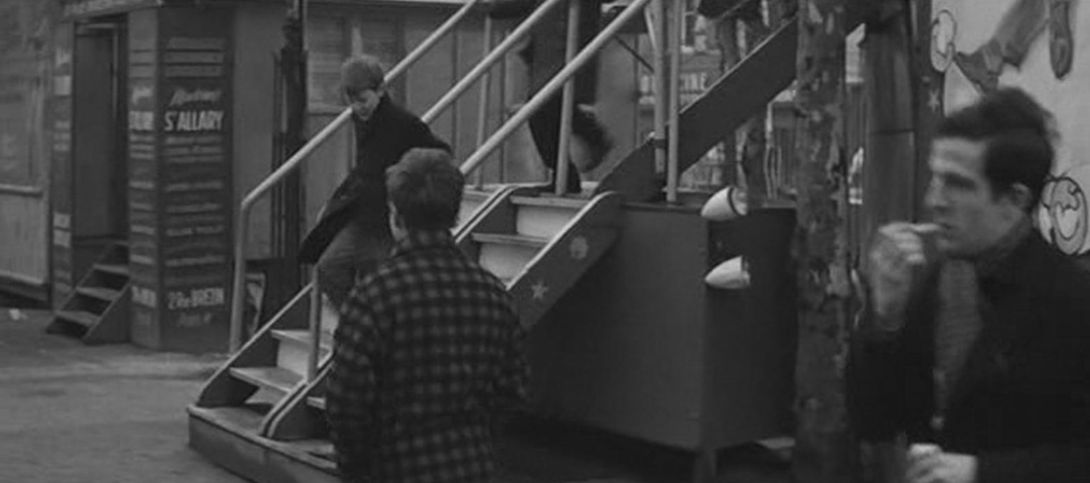
One of the many power scenes in The 400 Blows takes place at the dinner table where Antoine and his father have been left to their own devices while his mother is said to be working late. Antoine, unbeknownst to his parents, lies awake at night listening to his parents argue both about him and their marriage. You can read from Antoine's face that while he is listening to his father attempt to discuss what to do for his mother's upcoming birthday, all he can think about is what he saw earlier that day—his mother kissing a man she is having an affair with. Antoine is conflicted; his father is oblivious to his mother's infidelity, but to expose it would also expose the fact that Antoine only witnessed this because he had skipped school. There is also a sense that despite Antoine feeling more comfortable around his father because his expectations are not as rigid as his mother's, he is still not loyal enough to him to risk his own neck especially since his parent's marriage is already a troubled union. The subconscious guilt Truffaut fleshes out in this scene is incredible. The night before we heard an argument from Antoine's vantage point while he was thought to be sleeping wherein Antoine's father is expressing his frustration about his wife's lack of attention to household matters. However, at the dinner table, Antoine's father is lecturing Antoine about forgiving his mother for the very issues he himself is upset with his wife about. This ability to show the remnants of what used to be a loving relationship now overcome by the weight of struggle shows Truffaut's mastery as a humanist filmmaker. The ability to display the cracked foundation of the remains of love, where there is still warm affection distorted by the trials of everyday life is not something easily done through film or any other medium. Truffaut's grasp of humanity and nuanced relationships is something that elevates his films to a higher plane cementing his filmography as the collection of classics that it is.
The 400 Blows is a film I have waited over seven years to see. After positively falling in love with the films of Francois Truffaut, I made a conscious point of saving what many consider his best film so that I would have that brilliant first-time watch to look forward to. Truffaut was way too young when he died at the age of 52 in 1984, and spacing out his filmography over the years has been a truly gratifying and emotional experience for me. Truffaut is my greatest cinematic idol, the critic I wish I could be and the cinephile I aspire to be. Watching The 400 Blows felt like a religious sacrament, I gave it so much reverence and delivered like the best of my birthdays. I often say that Truffaut taught me how to feel, and what I mean by that is that his exploration of human emotion through film and his unwavering commitment to showcasing the feelings just beneath the surface made me realize a whole new depth to film. The ability of Truffaut's to tap the human mind and the world of a child in The 400 Blows is second to none. To show children innocently laughing at an adult swearing while simultaneously delving into the complexity of a child that feels out of step both in the world and in his family show his prowess as a storyteller. The masterful ending of the film with Antoine having just been transfixed by the expansive ocean, the audience gets the sense that Antoine feels both ready to take on the world while being at least partially defeated by it. Willing to dive deep into the ethos of childhood and refusing to simplify it, Truffaut gives a balanced perception of what it's like to be young while simultaneously creating the best coming-of-age film I have ever seen. In perhaps his most autobiographical feature, Francois Truffaut begins in perfect form with a brilliant debut feature The 400 Blows.
